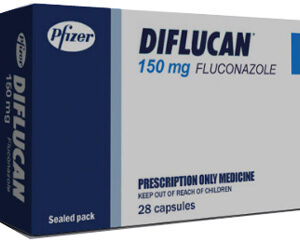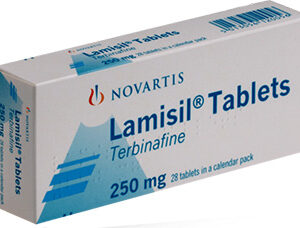Generic and Brand Names
Nizoral is the brand name for the generic medication ketoconazole, which belongs to a class of drugs known as azole antifungals.
Indications for Use
Nizoral is primarily indicated for the treatment of fungal infections such as athlete’s foot, ringworm, jock itch, and certain kinds of dandruff. It can also be used to treat yeast infections of the skin and tinea versicolor, a condition that causes skin discoloration.
Available Dosage Forms
Ketoconazole is available in multiple dosage forms including tablets, topical creams, shampoos, and foam. The concentration of ketoconazole in these formulations can vary. Tablets are commonly available in 200 mg strength, whereas the topical formulations can range from 1% to 2% concentration.
Pharmacological Mechanism
Nizoral works by inhibiting the synthesis of ergosterol, a vital component of the fungal cell membrane. Without ergosterol, the cell membrane becomes perforated and the fungus eventually dies.
Dosing Recommendations
The dosing regimen for Nizoral will depend on the form of the medication and the condition being treated. It is important to follow the doctor’s prescription or the directions on the label for the specific product you are using. For example, Nizoral tablets are often prescribed to be taken once daily, while the shampoo may be used twice weekly.
Administration Instructions
For oral administration, patients should take Nizoral tablets with food to improve absorption. When using topical forms like creams or shampoos, patients should clean and dry the affected area before application.
Duration of Treatment
Duration of treatment with Nizoral varies by infection type and severity. Some skin infections may require several weeks of therapy, whereas others may necessitate long-term treatment to prevent recurrence.
Storage Conditions
Keep Nizoral in its original container, tightly closed, and out of reach of children. Store it at room temperature, away from excess heat and moisture (not in the bathroom). Do not freeze the medication.
Potential Side Effects
Common side effects of Nizoral can include nausea, headache, dizziness, abdominal pain, and itching. Contacting a healthcare provider is important if any of these effects are persistent or worsen.
Drug Interactions
Ketoconazole can interact with a wide range of medications, such as certain cholesterol-lowering drugs (statins), blood thinners (anticoagulants), and antacids. It can also affect the metabolism of other drugs, potentially leading to increased or decreased drug effects.
Adjustments in Special Populations
Adjustments in dosing or frequency may be necessary for special populations, such as patients with impaired renal or hepatic function. In these cases, careful monitoring by a healthcare provider is crucial.
Use in Pregnancy and Lactation
Nizoral may be harmful if used during pregnancy or while breastfeeding. The benefits and risks should be discussed with a healthcare provider before using this medication in these populations.
Overdose Management
In the event of an acute overdose, supportive measures, including monitoring of vital signs and observation of the clinical status, should be instituted. Gastric lavage may be necessary in cases of significant ingestion.
Missed Dose Protocol
If a dose of Nizoral is missed, the patient should take the dose as soon as they remember unless it is almost time for the next scheduled dose. In such cases, the missed dose should be skipped, and the regular dosing schedule should be maintained. Doubling up on doses is not recommended.
Pharmacokinetics
Ketoconazole is well-absorbed after oral administration, but its bioavailability can be significantly reduced by gastric acidity, hence the need to take it with food. The drug is extensively metabolized in the liver and primarily excreted in the bile.
Monitoring Parameters
Clinical monitoring for fungal infections and liver function tests are recommended, especially when taking oral Nizoral. Monitoring might include periodic blood tests to check for liver toxicity or hormonal levels when treating certain endocrine disorders.
Medication Disposal
Nizoral should be disposed of in a manner that is safe for both the environment and pets, children, and other people. The medication should not be flushed down the toilet. Drug take-back programs or consulting with a pharmacist about disposal methods are recommended.
Patient Education Points
Patients should be made aware that the full prescribed course of Nizoral should be completed even if symptoms improve, to prevent recurrence of infection. They should also avoid alcohol consumption and report any significant side effects to their healthcare provider.
Off-Label Uses
While not approved for these uses, Nizoral might be prescribed off-label for treating advanced prostate cancer or Cushing’s syndrome due to its ability to suppress corticosteroid synthesis.




Reviews
There are no reviews yet.